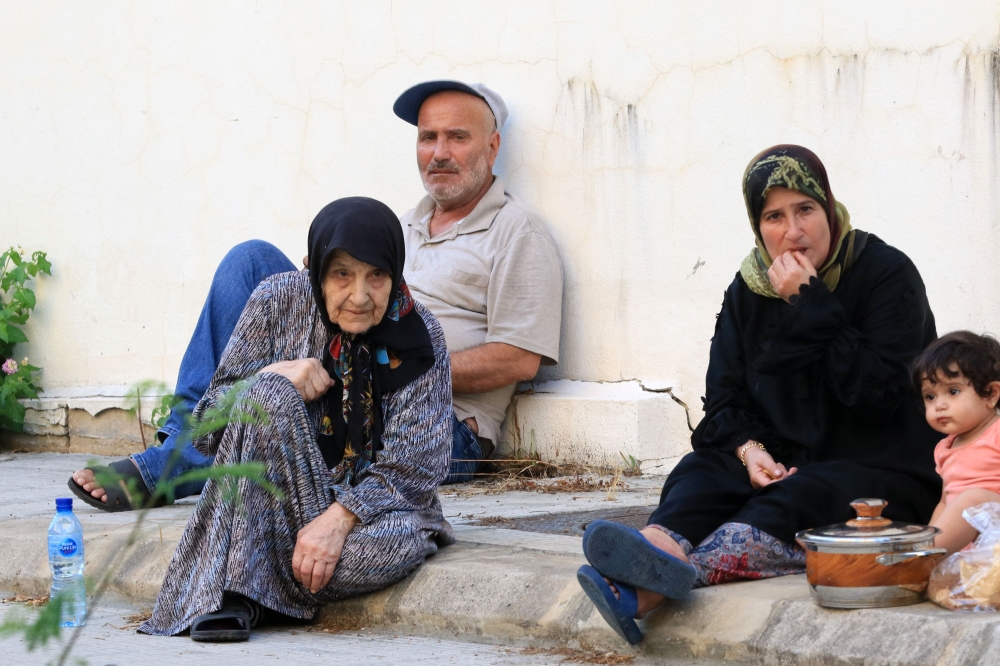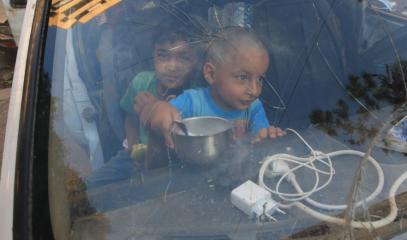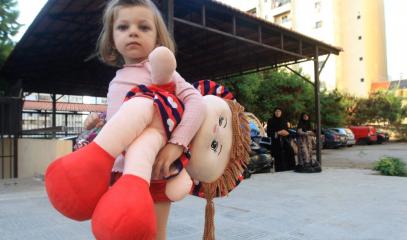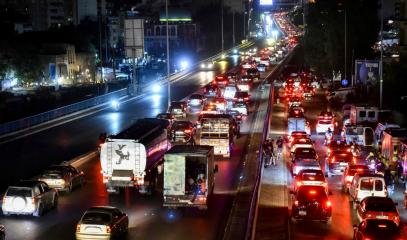Beirut, 'the other Gaza': the Lebanese exodus under Israeli bombs
Israel fighter planes have hit uninhabited as well as civilian targets, all treated as ammunition depots or Hezbollah launch pads. For one doctor, it is a "massacre", with many bodies feared to be under the rubble. The great escape from the south is underway, but some people choose to stay holed up in their villages. In some of Beirut’s predominantly Christian districts, empty houses and buildings under construction have been requisitioned.
Beirut (AsiaNews) – Last Sunday, UN Secretary-General Antonio Guterres expressed concern that Lebanon would become "another Gaza". On Monday, this prophecy came true and many parts of the country experienced the same appalling battering inflicted upon the Palestinian enclave.
The Israeli air force’s deadly dance, flying unhindered in Lebanon’s airspace, left some 492 people dead and nearly 1,600 wounded, with Israeli F-35s attacking targets located in uninhabited areas as well as civilian sites, arbitrarily treated as ammunition depots and rocket launch pads.
“In a country with no air-raid shelters, the death toll of hundreds of sorties is expected to rise further, with those who remain under the rubble still to be counted," said the correspondent of a local television station in the West Bekaa.
“It’s a catastrophe, a massacre," said Jamal Badrane, a doctor at the Secours Populaire Hospital in Nabatiyeh, the capital of the governorate by the same name, speaking to the AFP correspondent. "The strikes don't stop; they bombed us while we were removing the wounded," he lamented.
Displaced people from the south have flocked to the capital and to Saida (Sidon), hastily welcomed at improvised reception facilities, despite an emergency plan prepared by a ministerial crisis cell.
An exodus movement has even been observed from the southern suburbs, considered to be a Hezbollah stronghold. According to rumours circulating this morning, empty homes and buildings under construction have even been requisitioned under pressure in Beirut’s predominantly Christian neighbourhoods, bordering the southern suburbs.
Nightmare on the roads
The mass exodus has become a real ordeal for tens of thousands of Lebanese, prisoners in their own cars and vans, with only the bare necessities, on crammed roads. It took more than ten hours to travel from Tyre to the capital, according to witnesses who arrived exhausted in Beirut.
Standing on the edge of the Corniche Beirut, on the Avenue des Français, a man, who had been waiting for hours for the arrival of his family fleeing southern Lebanon, was philosophising into a television microphone. "We are lucky to have emergency housing, but woe to those who do not."
The rush on the roads was prompted by ominous warnings from the Israeli military calling on the Lebanese to "stay away until further notice from villages and buildings where Hezbollah weapons are stored." These calls were reinforced by other anonymous messages.
Even the Ministry of Information and the Ministry of Culture, in the heart of Beirut, received such messages. The ministers concerned were able to face down the bluff, but not without causing concern among civil servants. "We are witnessing what Israel's madness can be, and the impunity it enjoys internationally," a secretary told Ici-Beyrouth.
A very bad night
Tens of thousands of Lebanese spent a very bad night in various public schools and institutes in Saida and Beirut. Dozens of families were crammed into the rooms and halls of the hotel school in Dékouané, in the northern suburbs of Beirut, where Hezbollah brought foam mattresses, and municipal authorities delivered bottled water and sandwiches.
“We left our homes with nothing, with only our clothes," complained one woman. “No region has been spared. We are on edge. Where to go, you tell me?” Her son took his canary with him.
In the public school for girls in Baabda, volunteers from President Michel Aoun's Free Patriotic Movement helped refugees. "It's as if the classroom space has become elastic, like in Gaza," one volunteer said.
“Families without means have asked us to evacuate them," says Georges Kettaneh, the president of the Lebanese Red Cross. “This is not our task. There are, however, priorities: hospital emergencies and the safety of our paramedics.
"South of the Litani River, we cannot move without coordinating with the international force, otherwise our ambulances could be targeted. In addition, we had to help move some seriously wounded people from one hospital to another. It was mainly the traffic in the streets that delayed us. Our ambulances were caught in traffic jams, like everyone else. But we won't let anyone down," he says.
Holed up in their villages
Thousands of families have fled the bombed areas, according to the Ministry of Health. But thousands of Lebanese preferred to remain holed up in their villages located far from the combat zones, to avoid the deadly risks of emergency displacement.
This enabled dozens of motorists watch, stunned, as in a television film, the Israeli air force pound Ghaziyeh, south of Saida.
“Hezbollah has fired thousands of rockets at Israel, but not a single surface-to-air rocket has worried [Israel’s] US-made planes. We are animals, subhumans left to be slaughtered," said an individual whose family remained in the South, interviewed by phone.










.png)










